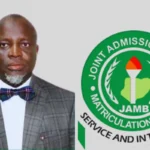Kemi Badenoch, leader of the UK Conservative Party, has sparked controversy following comments about her Nigerian heritage. In a recent interview with British media, Badenoch emphasized her Yoruba identity, distancing herself from Northern Nigeria and describing the region as troubled by extremism.
“I find it interesting that everybody defines me as being Nigerian. I identify less with the country than with the specific ethnicity [Yoruba],” she said. “I have nothing in common with the people from the north of the country, the Boko Haram where Islamism is. Being Yoruba is my true identity, and I refuse to be lumped with northern people of Nigeria, who ‘were our ethnic enemies,’ all in the name of being called a Nigerian.”
Badenoch also highlighted her family history, referring to her surname as symbolic of warrior heritage, adding, “I am here to protect, and I will die protecting this country because Iunderstand what’s out there.”
Her remarks drew criticism from Vice President Kashim Shettima, who publicly suggested she drop her Nigerian name. Many Nigerians have also condemned her statements, accusing her of fueling ethnic division and misrepresenting the nation.
This controversy has drawn parallels with the case of Mazi Nnamdi Kanu, leader of the Indigenous People of Biafra (IPOB), who was forcefully renditioned from Kenya under the Buhari administration in violation of international law. Critics argue that Nigeria has a pattern of suppressing voices that challenge the status quo or highlight uncomfortable truths. Badenoch’s critics, much like Kanu’s, have been accused of attacking the messenger instead of addressing the systemic issues she highlighted.
It is a growing concern that in Nigeria, speaking the truth often invites heavy criticism or even persecution. This situation raises serious questions about the nation’s tolerance for dissent and its commitment to addressing its internal divisions.

















